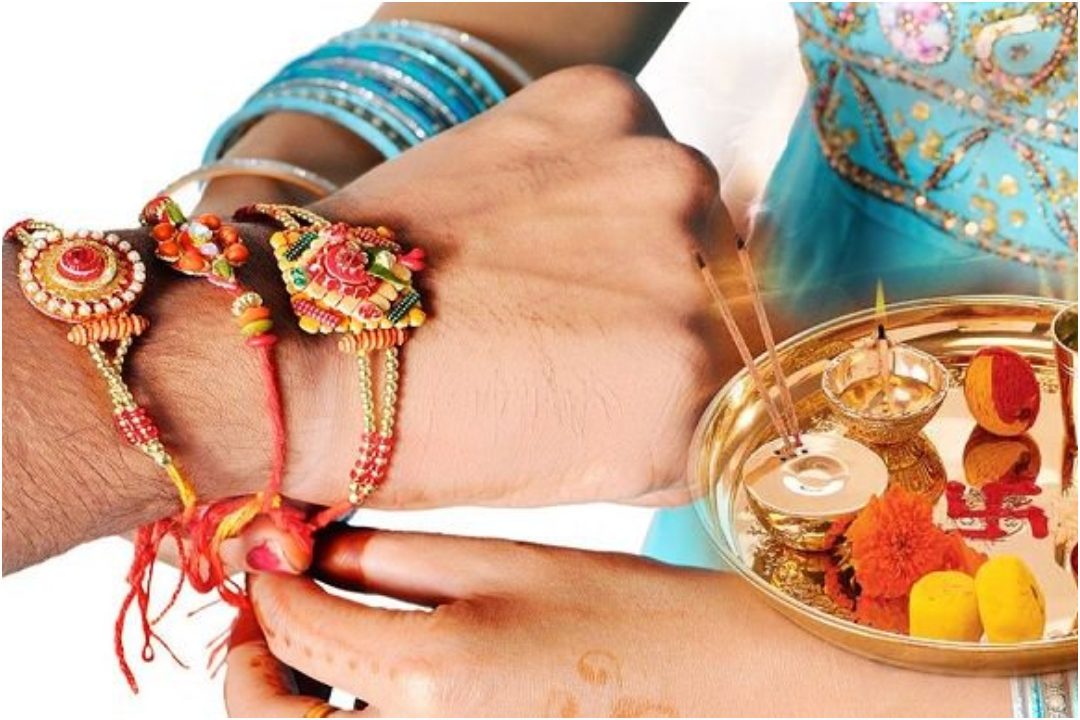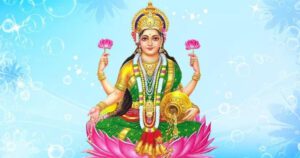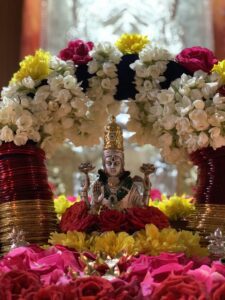
Why Is Raksha Bandhan Celebrated?
Why Is Raksha Bandhan Celebrated?
Raksha Bandhan, also known as Rakhi, is a significant Hindu festival that celebrates the unique bond between brothers and sisters. It is a day filled with love, affection, and the exchange of promises. This joyous occasion is marked by the tying of a sacred thread, called a rakhi, by a sister around her brother’s wrist, symbolizing her love, protection, and prayers for his well-being. The festival holds great cultural and emotional significance and is observed with immense enthusiasm across India and among the Indian diaspora worldwide. In this article we will explore why is raksha bandhan celebrated?
The Mythological Tale: The origins of Raksha Bandhan can be traced back to various mythological legends that have been passed down through generations. One such tale is that of Lord Krishna and Draupadi. In the epic Mahabharata, Draupadi, the wife of the Pandavas, tore a piece of her saree to bandage Lord Krishna’s wounded finger. Touched by her selfless gesture, Krishna vowed to protect and support Draupadi whenever she needed help. This sacred bond between them became the inspiration for Raksha Bandhan.
Another popular mythological story associated with Raksha Bandhan is the tale of King Bali and Goddess Lakshmi. According to Hindu mythology, Lord Vishnu disguised himself as a dwarf (Vamana avatar) and approached King Bali, who was known for his generosity. Impressed by the dwarf’s modesty, King Bali offered him anything he desired. The dwarf then revealed his true form as Lord Vishnu and asked for three steps of land. Lord Vishnu covered the entire universe in just two steps. Realizing the dwarf’s divinity, King Bali offered his own head for the third step. Pleased by his devotion, Lord Vishnu granted King Bali immortality. It is believed that since then, Goddess Lakshmi, who is Vishnu’s consort, visits King Bali every year to tie a protective thread on his wrist, symbolizing her eternal bond and blessings.
The Significance of Raksha Bandhan: Raksha Bandhan signifies the sacred relationship between siblings, particularly brothers and sisters. The word “Raksha” means “protection,” and “Bandhan” means “bond.” The festival represents the promise of unconditional love, support, and protection between siblings. On this day, sisters tie a rakhi around their brothers’ wrists, praying for their well-being, prosperity, and long life. In return, brothers offer gifts and vow to protect their sisters from any harm or adversity.
The Rakhi Ceremony: Raksha Bandhan is celebrated with great enthusiasm and involves several rituals. Sisters usually prepare for the festival by selecting a beautiful rakhi, which can be a simple thread, an intricately designed bracelet, or a decorated silk band. The rakhi is often adorned with beads, sequins, and religious symbols, signifying the sacredness of the bond. Sisters also apply a tilak (vermillion mark) on their brothers’ foreheads, offer sweets, and perform aarti (a ceremonial prayer).
The celebration extends beyond immediate siblings, as cousins, close friends, and even neighbors participate in the Raksha Bandhan ceremony. It promotes a sense of unity, love, and harmony within the community.
Beyond Blood Relations: Raksha Bandhan has evolved to encompass relationships beyond biological siblings. In modern times, people tie rakhis to individuals they consider their brothers or sisters, regardless of blood ties. This inclusive approach reflects the festival’s essence of strengthening bonds, fostering love, and promoting unity.
Raksha Bandhan is a beautiful festival that celebrates the cherished bond between brothers and sisters. It holds immense cultural and emotional significance in the Indian tradition, symbolizing love, protection, and the promise of lifelong support. The festival not only strengthens familial ties but also promotes unity, harmony, and a sense of togetherness within communities. As the sacred thread is tied on the wrist, Raksha Bandhan serves as a reminder of the importance of nurturing and preserving the precious relationships in our lives.







